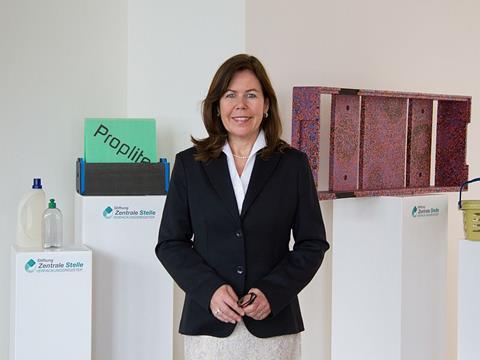
Gunda Rachut, Chair of Germany’s Central Packaging Registry (ZSVR), explains why the “new” Packaging Act is not really all that new and should not bring any real surprises. In this interview she explains why.
Where do we currently stand in terms of putting the new Packaging Act into practice?
Gunda Rachut: We’re very happy right now, with more than 160,000 entries in the LUCID packaging register so far. That’s almost three times the number of companies that had a contract under the dual system scheme in 2017. The number of registrations is still rising. The target is to have about 250,000 registered companies by the end of 2019. By having a register that’s publicly accessible, we have built on the basis provided by the law to enable us to identify “freeloaders” in the system, and demonstrate the fact that they are non-compliant because they are not participating.
You mentioned “freeloaders”. What has gone wrong in the past?
Rachut: Although the principle of product responsibility and the associated obligation to take part in the system has been in place for more than 20 years now, the information and knowledge about it is taking a long time to reach the people in charge. Unfortunately, that means many of the companies covered by the obligation are very unfamiliar with the basic subject matter. The lack of awareness of the basic obligation to take part in the system must surely be the greatest obstacle to putting the new obligations into practice. That’s why it’s still essential to meet this need for information, so companies can meet their obligations without delay – even if it’s already a little late – and openly show they are complying with their product responsibility obligations.
How come not all companies are registered yet?
Rachut: One barrier for small and very small companies can sometimes be the belief that implementing the old and new obligations will involve a lot of bureaucracy. Of course, this is not the case. There is no charge to register and report data to the LUCID packaging register. The registration process was deliberately designed with a low threshold. It’s as easy as setting up an account with an online vendor. The companies involved regularly tell us it takes no more than 10-15 minutes to register.
Do the companies realise the consequences they face if they don’t comply with their legal requirements?
Rachut: The number of warnings and notices increases every day. A lot of effort is going into watching the competition. As far as we can tell, all the authorities are busy sending out notices right now. News of all these activities gets around, and helps to influence the number of registrations. Many of the parties affected are still clearly unable to believe that the Packaging Act is now reality, and that their non-compliant behaviour will be noticed in future. Failure to comply with the Packaging Act is an administrative offence, and depending on the severity of the violation, it may incur a fine of up to €200,000 and an automatic ban on sales. To ensure the penalties are proportionate, profits may also be absorbed in addition to the penalties outlined above in some cases. This makes sure the penalties are not lower than the potential benefit to be had from not participating.
What suggestions can you offer product developers/packaging designers to improve recyclability or reduce the contribution costs that companies will face?
Rachut: Based on the guideline published by the ZSVR to measure packaging recyclability, it makes sense to work on the materials and composition of packaging, and on its design. It also makes sense to avoid using packaging wherever possible. On this basis, many companies have already given thought to using less packaging, and making it more environmentally friendly. Packaging research and development is also being expedited, from sorting through to recycling. Genuine innovations are needed here to refine the recycling of packaging in line with legal objectives. A comprehensive approach to packaging design is very important, taking account of all the related topics along the entire value chain, to achieve appropriate rates of recycling.
Expert presentations and discussions at FachPack 2019 will look at the new Packaging Act and its requirements in greater depth.
















